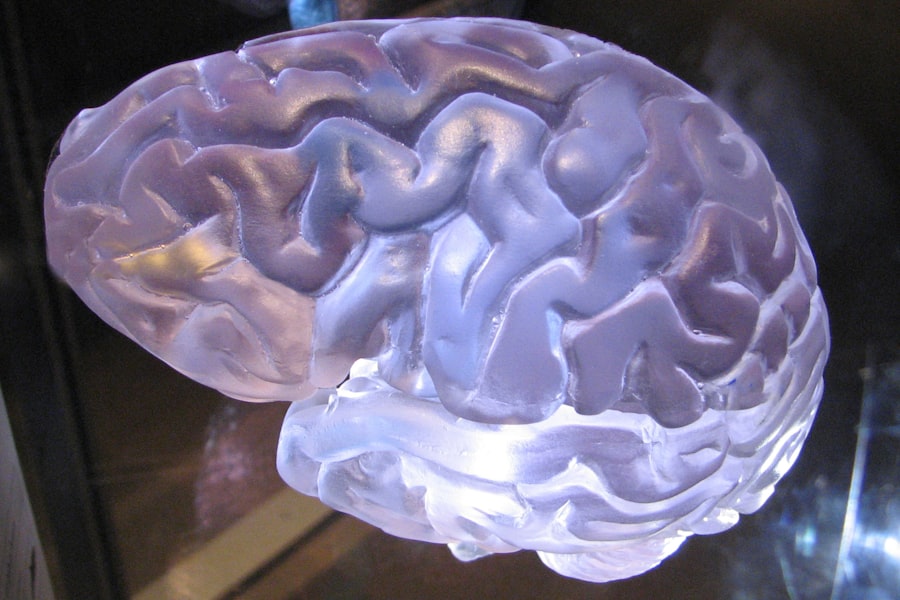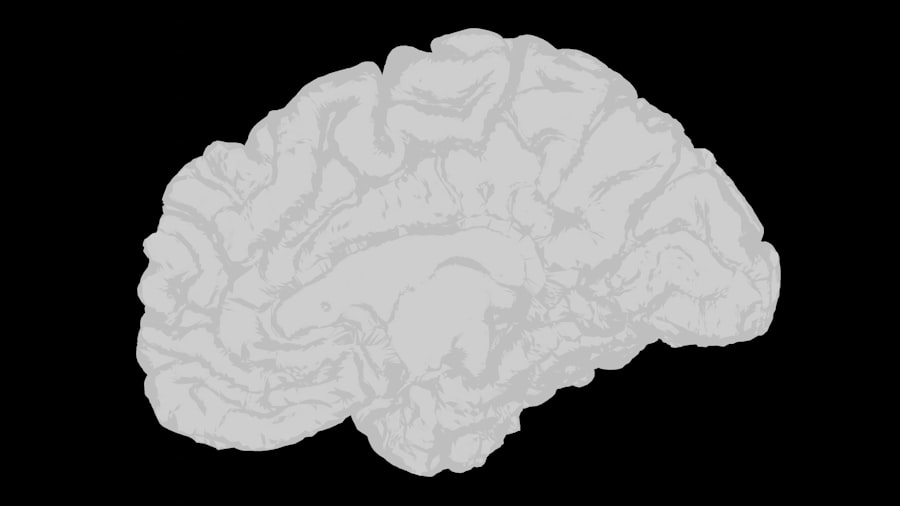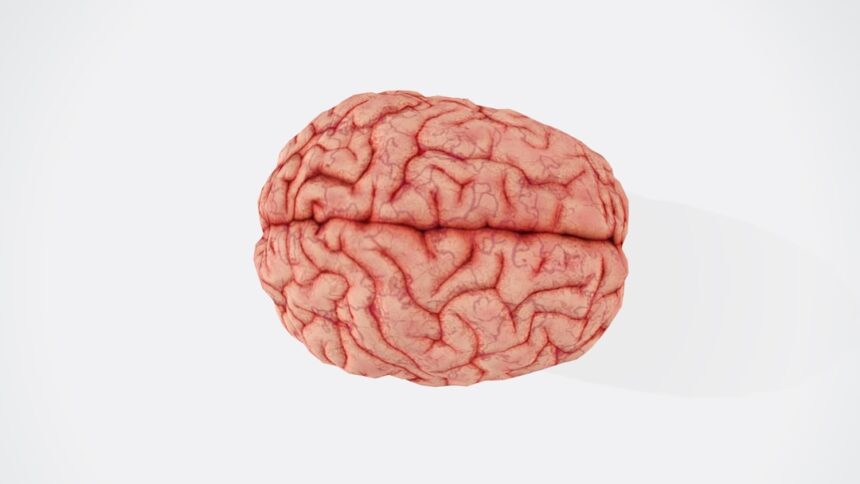Trauma is a complex and multifaceted experience that can have profound effects on an individual’s mental and physical health. When you encounter a traumatic event, your brain undergoes significant changes that can alter its structure and function. Understanding how trauma impacts the brain is crucial for recognizing the long-term consequences it can have on your emotional and cognitive well-being.
The brain is not a static organ; it is dynamic and responsive to experiences, particularly those that are distressing or harmful. As you delve into the relationship between trauma and brain structure, it becomes evident that various regions of the brain play distinct roles in processing traumatic experiences. The interplay between these regions can lead to changes that affect your behavior, emotions, and overall mental health.
By exploring the intricate connections between trauma and brain structure, you can gain insights into the mechanisms that underlie trauma responses and the potential pathways for healing and recovery.
Key Takeaways
- Trauma can have a significant impact on the structure and function of the brain, leading to long-term effects on mental health.
- Stress hormones play a crucial role in the body’s response to trauma, contributing to the development of conditions such as PTSD.
- The amygdala, responsible for processing emotions, can become hyperactive in response to trauma, leading to heightened fear and anxiety.
- Trauma can have a detrimental effect on the hippocampus, impacting memory and the ability to regulate emotions.
- The prefrontal cortex, responsible for decision-making and emotional regulation, can be impaired by trauma, leading to difficulties in coping with stress and regulating emotions.
The Role of Stress Hormones in Trauma
When you experience trauma, your body reacts by releasing stress hormones, primarily cortisol and adrenaline. These hormones are part of your body’s fight-or-flight response, preparing you to either confront or flee from danger. While this response can be life-saving in acute situations, chronic exposure to stress hormones due to ongoing trauma can lead to detrimental effects on your brain.
Elevated levels of cortisol can disrupt normal brain function, affecting areas responsible for memory, emotional regulation, and decision-making. The impact of stress hormones extends beyond immediate reactions; they can also influence how you process memories related to the traumatic event. For instance, heightened cortisol levels can lead to the formation of fragmented memories, making it difficult for you to recall events clearly.
This disjointed memory processing can contribute to feelings of confusion and anxiety, further complicating your ability to cope with the aftermath of trauma. Understanding the role of stress hormones is essential for recognizing how they shape your responses to trauma and influence your overall mental health.
Effects of Trauma on the Amygdala

The amygdala, a small almond-shaped structure located deep within your brain, plays a pivotal role in processing emotions, particularly fear. When you experience trauma, the amygdala becomes hyperactive, heightening your sensitivity to perceived threats. This heightened state of alertness can lead to exaggerated fear responses, making it challenging for you to feel safe even in non-threatening situations.
The amygdala’s overactivity can manifest as anxiety, panic attacks, or hypervigilance, significantly impacting your daily life. Moreover, the amygdala’s response to trauma can create a feedback loop that perpetuates feelings of fear and anxiety.
This process can hinder your ability to engage in healthy relationships or pursue activities that once brought you joy. By understanding how trauma affects the amygdala, you can begin to recognize the patterns in your emotional responses and seek strategies to regain a sense of control over your feelings.
Impact of Trauma on the Hippocampus
| Study | Findings |
|---|---|
| Research Study 1 | Reduced hippocampal volume in individuals with PTSD |
| Research Study 2 | Impaired hippocampal function in individuals exposed to childhood trauma |
| Research Study 3 | Association between hippocampal damage and severity of trauma exposure |
The hippocampus is another critical region of your brain that is significantly affected by trauma. This area is primarily responsible for forming new memories and regulating emotional responses. When you experience trauma, the hippocampus may shrink in size due to prolonged exposure to stress hormones like cortisol.
This reduction in volume can impair your ability to create coherent memories and process information effectively. As a result, you may find it challenging to distinguish between past and present experiences, leading to flashbacks or intrusive thoughts related to the trauma. The impact on memory can also affect your ability to learn new information or engage in problem-solving tasks.
Trauma and the Prefrontal Cortex
The prefrontal cortex is often referred to as the brain’s executive center, responsible for higher-order functions such as decision-making, impulse control, and emotional regulation. Trauma can disrupt the functioning of this area, leading to difficulties in managing emotions and making rational decisions. When you experience trauma, the prefrontal cortex may become less active, resulting in impulsive behaviors or difficulty concentrating.
This impairment can manifest in various ways, such as challenges in maintaining relationships or managing stress effectively. You may find yourself reacting emotionally rather than thoughtfully in situations that require careful consideration. Recognizing how trauma affects the prefrontal cortex can empower you to seek strategies that enhance cognitive functioning and emotional regulation, ultimately aiding in your recovery journey.
Changes in Neurotransmitter Function after Trauma

Neurotransmitters are chemical messengers that facilitate communication between neurons in your brain. Trauma can lead to significant changes in neurotransmitter function, particularly those related to mood regulation, such as serotonin and dopamine. When you experience trauma, imbalances in these neurotransmitters can contribute to symptoms of depression, anxiety, and other mood disorders.
For instance, decreased serotonin levels may lead to feelings of sadness or hopelessness, while altered dopamine function can affect motivation and pleasure-seeking behaviors. Understanding these changes in neurotransmitter function is essential for recognizing how trauma influences your emotional landscape. By addressing these imbalances through therapeutic interventions or lifestyle changes, you can work towards restoring a sense of balance and well-being.
Trauma and the Development of PTSD
Post-Traumatic Stress Disorder (PTSD) is a mental health condition that can develop after experiencing or witnessing a traumatic event. If you find yourself struggling with persistent symptoms such as flashbacks, nightmares, or severe anxiety following a traumatic experience, it may indicate the onset of PTSD. The relationship between trauma and PTSD is complex; not everyone who experiences trauma will develop this condition, but those who do often face significant challenges in their daily lives.
The symptoms of PTSD are rooted in the brain’s response to trauma, particularly involving areas like the amygdala and hippocampus. As previously mentioned, hyperactivity in the amygdala can lead to heightened fear responses, while hippocampal dysfunction can result in fragmented memories. Together, these factors contribute to the distressing symptoms associated with PTSD.
Understanding this connection can help you recognize that seeking support is not only valid but essential for healing.
Neuroplasticity and Trauma Recovery
Neuroplasticity refers to the brain’s remarkable ability to reorganize itself by forming new neural connections throughout life. This adaptability is particularly relevant when it comes to trauma recovery. Despite the damaging effects of trauma on brain structure and function, neuroplasticity offers hope for healing and growth.
As you engage in therapeutic practices or supportive interventions, your brain has the potential to rewire itself and develop healthier patterns of thinking and behavior. Engaging in activities that promote neuroplasticity—such as mindfulness meditation, cognitive-behavioral therapy (CBT), or physical exercise—can facilitate positive changes in your brain’s structure and function. These practices encourage new neural pathways that support emotional regulation and resilience.
By harnessing the power of neuroplasticity, you can actively participate in your recovery journey and work towards reclaiming a sense of agency over your life.
The Long-Term Effects of Trauma on Brain Structure
The long-term effects of trauma on brain structure can be profound and enduring. Research has shown that individuals who have experienced significant trauma may exhibit structural changes in key areas of the brain even years after the event has occurred. These changes can manifest as alterations in brain volume or connectivity between regions responsible for emotional regulation and cognitive processing.
Understanding these long-term effects is crucial for recognizing that healing from trauma is often a gradual process that requires ongoing support and intervention. You may find that certain triggers continue to elicit strong emotional responses long after the initial trauma has passed. Acknowledging these lasting impacts allows you to approach your healing journey with compassion and patience while seeking appropriate resources for support.
Therapeutic Approaches to Address Trauma-Related Brain Changes
Addressing trauma-related brain changes requires a multifaceted approach that encompasses various therapeutic modalities. Evidence-based treatments such as Eye Movement Desensitization and Reprocessing (EMDR), Cognitive Processing Therapy (CPT), and somatic experiencing have shown promise in helping individuals process traumatic memories and reduce symptoms associated with PTSD. In addition to traditional therapies, incorporating holistic practices such as mindfulness meditation, yoga, or art therapy can enhance your healing experience by promoting self-awareness and emotional expression.
These approaches not only address cognitive aspects but also engage your body’s innate capacity for healing. By exploring different therapeutic avenues, you can find what resonates with you personally and supports your journey toward recovery.
Understanding and Addressing Trauma’s Impact on the Brain
In conclusion, understanding how trauma impacts brain structure is essential for recognizing its far-reaching effects on mental health and well-being. From alterations in neurotransmitter function to changes in key brain regions like the amygdala and hippocampus, trauma leaves an indelible mark on your brain’s architecture. However, it is important to remember that healing is possible through neuroplasticity and various therapeutic approaches.
By acknowledging the complexities of trauma’s impact on your brain, you empower yourself to seek support and engage in practices that promote recovery. Whether through traditional therapy or holistic methods, taking proactive steps toward healing can lead you toward a more balanced and fulfilling life. Embracing this journey with patience and self-compassion will ultimately help you reclaim your sense of self and navigate the path toward resilience.
Trauma can have profound effects on the brain’s structure, altering neural pathways and impacting emotional regulation, memory, and cognitive function. These changes can manifest in various ways, such as heightened anxiety, difficulty concentrating, and emotional dysregulation. For a deeper understanding of how trauma affects the brain, you can explore this related article that delves into the neurological impacts of traumatic experiences and offers insights into potential therapeutic approaches to mitigate these effects. Understanding these changes is crucial for developing effective interventions and supporting individuals on their path to recovery.
🧠 Your Trauma Is Rewiring Your Brain: Here’s How to Undo It | A Neuroplasticity & Somatic Guide
FAQs
What is trauma?
Trauma refers to a deeply distressing or disturbing experience that overwhelms an individual’s ability to cope. It can be caused by a single event, such as an accident or natural disaster, or by ongoing stressors, such as abuse or neglect.
How does trauma affect the brain structure?
Trauma can lead to changes in the brain’s structure, particularly in areas related to memory, emotion regulation, and stress response. These changes can impact the way the brain processes information and can contribute to symptoms of post-traumatic stress disorder (PTSD) and other mental health conditions.
What are some of the specific changes that occur in the brain due to trauma?
Some specific changes that can occur in the brain due to trauma include alterations in the size and function of the amygdala, hippocampus, and prefrontal cortex. These changes can affect the individual’s ability to regulate emotions, form new memories, and respond to stress.
Can trauma-induced changes in the brain be reversed?
While the effects of trauma on the brain can be long-lasting, there is evidence to suggest that certain interventions, such as therapy and medication, can help to reverse some of these changes. Additionally, engaging in activities that promote relaxation and stress reduction, such as mindfulness and exercise, may also support the brain’s ability to heal.
Are there any long-term consequences of trauma-induced changes in the brain?
Trauma-induced changes in the brain have been linked to a range of long-term consequences, including an increased risk of developing mental health disorders, difficulties with memory and concentration, and challenges in forming and maintaining healthy relationships. However, it’s important to note that not everyone who experiences trauma will develop these long-term consequences.




